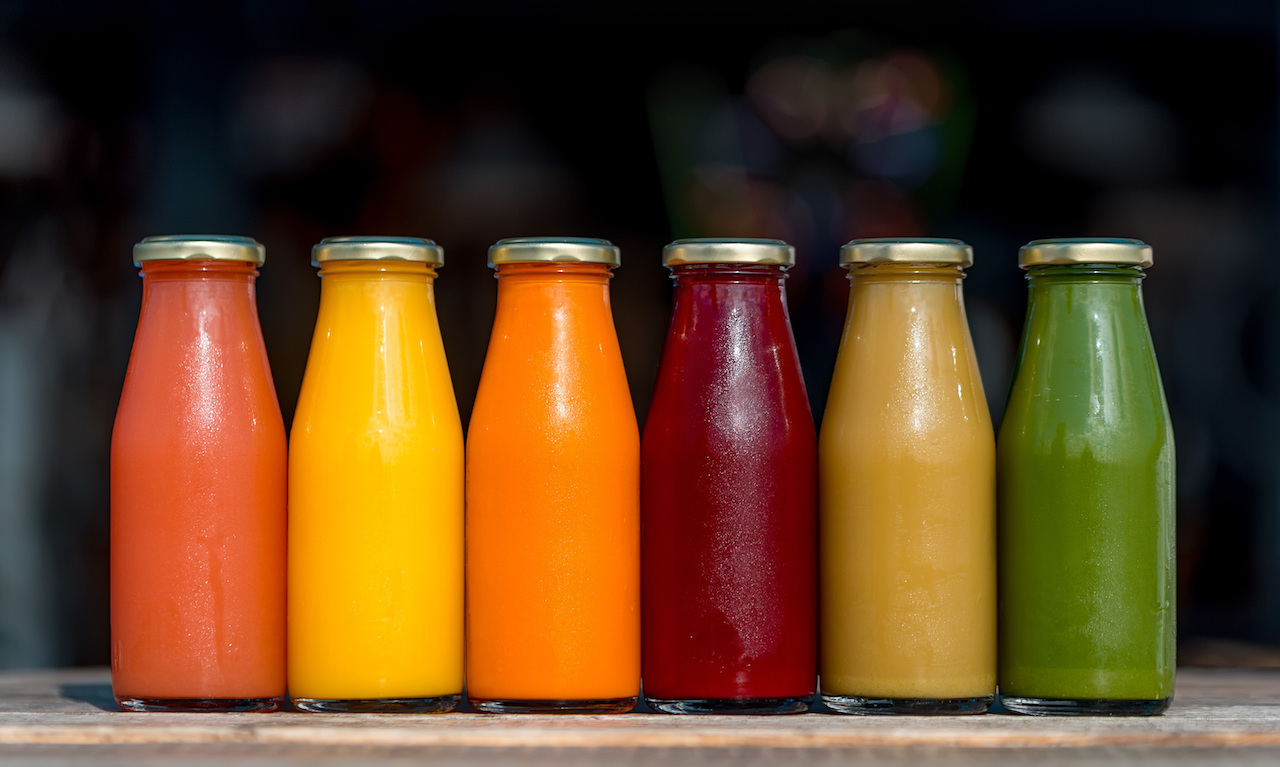It’s the middle of the day. You’re cranky, thirsty and browsing the fridge in your local store for a healthy drink, but you feel stuck. According to the latest health news, everything seems to be bad for you:
- fruit juice has too much sugar;
- flavoured water has too much artificial ingredients
- soft drinks are basically like drinking pure syrup
So what is your best alternative?
How to make sense of it
Fruit juice isn’t all bad. The problem is that most fruit juices are over-processed, taking out the healthy components, and leaving only the sugary drink behind.
To get the best value, you need to find a fruit juice that is as close to natural as possible. Concentrated juice isn’t bad for you, but the lack of fibre which is lost during the juicing process, is a key problem.
According to the South African Juice Association, the natural sugar content of fruit is between 8% and 12%, but the levels vary, which depends on the stage of ripeness of the fruit as well as where it was grown.
Which type of juice is which?
- Raw juice means the juice wasn’t heated, pasteurised, or processed in any form. These have the shortest shelf-life, but they are the healthiest option. Don’t store it too long, though, since they can breed harmful bacteria. Keep the pulp; the healthy fibres will fill you up.
- Cold pressed juice has all its valuable enzymes intact. The juice stores all of its minerals, vitamins, enzymes, antioxidants, amino acids, carbohydrates, water, and essential fatty acids. Although there is not enough research to prove that it’s that much better than raw juice – and it can be expensive!
- 100% juice counts as one serving of fruit juice. The juice contains no additives or unwanted chemicals and its shelf life will not be as long as the others.
- No added sugar products may not contain any added sugar or sweeteners, but still have natural sugars of the fruit juice: not your best option.
- Fruit drinks either have no fruit content or less than 5%. These are made with sugar, high intensity sweeteners, colouring, flavouring, food acids and water. Stay away!
Your best bet is a juice with all the health benefits, so our vote goes to cold pressed or raw juice: it’s full of fiber, and as fresh as they come.
What about juice concentrate?
Concentrate is what’s left after the extra water has been removed from the fruit juice right before packaging. Concentrate has a lot of sugar and is diluted with water or carbonated water.
Nectar contains about 25-50% of fruit juice, puree or fruit pulp, with a thick syrupy consistency. It’s made by pasteurisation, where the juice is heated to a specific temperature to kill (or deactivate) harmful bacteria. Nectar has added sugar.
Squash (also known as dilute) is a concentrated liquid made from a combination of fruit juice or syrup and sugar/sugar substitute. Many contain less than 20% juice and some as little as 5-10%. It may contain food colouring and flavouring.
Cordial is a non-alcoholic fruit-flavoured syrup with a mix of fruit juice, sugar, tartaric or citric acid. Cordials are used as mixers for cocktails.
Blend is a mixture of fruit juice and other fruits and high-fructose corn syrup. Not good!
Better choices
If you do settle for a fruit-juice, aim for a raw, cold-pressed, 100% juice (with the pulp). Here are some juices with specific health-benefits:
- Cranberry juice has properties to keep your urinary tract healthy.
- Pomegranate juice is packed with antioxidants that can fight diseases.
- Prune juice is a classic cure for constipation; it can help with digestion too.
- Orange juice is an immune system booster and is loaded with Vitamin C. It can help reduce inflammation, improve cholesterol and blood circulation.
References:
- https://www.caloriesecrets.net/is-fruit-juice-good-for-you/
- http://msue.anr.msu.edu/news/is_your_fruit_juice_really_100_percent_fruit_juice
- https://www.bbcgoodfood.com/howto/guide/should-i-still-drink-fruit-juice
- https://www.rd.com/health/diet-weight-loss/healthy-juices/
- http://www.grapescience.com/pdfs/Grape%20Research%20Overview_rev%2008.13.pdf
- http://www.plein-fruit.com/38-nutrition
- https://www.thespruce.com/understanding-liqueurs-and-cordials-759932
- http://www.nzjba.org.nz/myfiles/Juice_Descriptors_May_2013.pdf
- https://www.safja.co.za/safja-faq.html

